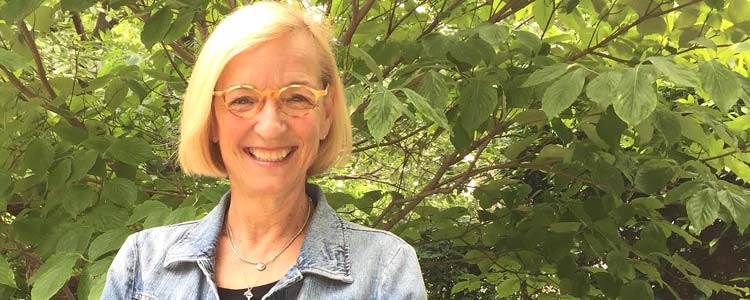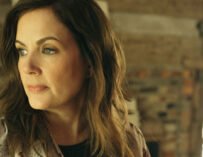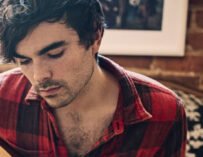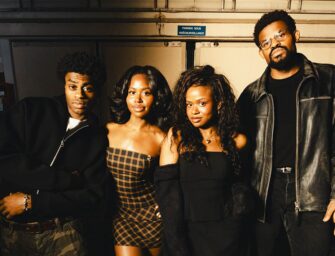
Kye Fleming: “I’d been struggling to get to the place where somebody pays me to write songs”
The award-winning Nashville songwriter for legends like Tina Turner, Bette Midler and Willie Nelson talks about her life in music
 ll it takes is a quick glance at some of her achievements to realise that Kye Fleming is a songwriter of almost unparalleled talent. Among her 42 BMI awards are the Songwriter Of The Year prizes she won with writing partner Dennis Morgan from 1981-83, recognition of an astonishingly successful period. By adding her pop sensibilities to the Nashville sound, Kye was able to pen huge hits such as Barbara Mandrell’s I Was Country (When Country Wasn’t Cool) and the Ronnie Milsap classic Smoky Mountain Rain, which in 2010 became the official state song of Tennessee. Her songs have been recorded by legends such as Tina Turner, Bette Midler and Willie Nelson.
ll it takes is a quick glance at some of her achievements to realise that Kye Fleming is a songwriter of almost unparalleled talent. Among her 42 BMI awards are the Songwriter Of The Year prizes she won with writing partner Dennis Morgan from 1981-83, recognition of an astonishingly successful period. By adding her pop sensibilities to the Nashville sound, Kye was able to pen huge hits such as Barbara Mandrell’s I Was Country (When Country Wasn’t Cool) and the Ronnie Milsap classic Smoky Mountain Rain, which in 2010 became the official state song of Tennessee. Her songs have been recorded by legends such as Tina Turner, Bette Midler and Willie Nelson.
Fleming now spends much of her time developing and mentoring other artists and working as a publisher. She has recently joined the team at iDoCoach, helping young songwriters from around the world who are looking to develop their craft. Today though, we’ve come to a diner just off Nashville’s legendary Music Row, the birthplace of many of Fleming’s hits, to take a look back at her career as one of the city’s most successful female writers.
When did you know you wanted to be a songwriter?
“When I was in the 9th grade my aunt gave me a guitar from Sears. I’d had some piano lessons when I was younger but when I got a guitar in my hand it was really awesome. I didn’t take any lessons I just messed around with it and it turned out that it was easier for me to write a song than it was to learn somebody else’s. Still is.”
What happened next?
“My dad was in the Navy so we moved a lot. I ended up in Fort Smith, Arkansas and started playing clubs and coffee houses. I loved doing it and people seemed to enjoy hearing me do it. Then I went to the University of Arkansas and I had a little vocal scholarship but I was singing Latin and I’m thinking ‘You know, they really can’t teach me anything that I really need to know’ so I decided to start focusing on my playing and I booked myself gigs in a lot of places.
“When I was in Tulsa, and I think I was 20, I was playing at a hotel and Elvis Presley was playing in town and his band was at this hotel. I didn’t meet Elvis but his band was there during happy hour and heard me play. Jerry Schef, Ronnie Tutt and Glen Hardin were all saying ‘You’re good’ and ‘We love your songs,’ and Jerry said ‘I tell you what, we’re going to be recording Elvis in about a month in Los Angeles. Why don’t you come there and I’ll introduce you to some publishers?’. And so I got in my Ford Econoline van and I shuttled off to California. And the first publisher I saw said ‘Yeah, I’d like to sign you’. So I was thrilled and I got a song of mine on The Sonny & Cher Show and that was nice. I stayed there about nine months but wasn’t sure and so I went back to Arkansas.”
Then did you head to Nashville?
“No, I flew to New York and tried out for the coffee house circuit. I played at The Bitter End in Greenwich Village and they signed me and that’s what I did for the next couple of years. Then I moved to Boston and played clubs there, but a manager from New York heard me play and wanted to manage me so I moved to Manhattan. I got a little interest and Steve Popovich at Epic got me to do a demo, but by the time I finished it he’d been let go. So I was kind of beating my head against the wall because I would get so close.

Kye Fleming and her dog
“I decided I needed to go home, visit my folks in Arkansas and just chill for a bit, regroup. But then about 30 minutes after I talked to my folks, Jerry Schef called and asked me to go to Nashville with him. I had never even stopped there, just driven through on the Interstate because I didn’t think my stuff was country, I was a folkie! So anyway I came here and met him and he picked me up at the airport and I saw some publishers. Tom Collins wanted to sign me so I went back to New York and got my stuff and came down in two weeks and started writing.”
How long after that did you meet Dennis Morgan?
“I met Dennis right away and we started writing together and things were going really well, but then I had this interesting shift of perspective. I’d been struggling to get to the place where somebody pays me to write songs and now I’ve got it, this is what I’ve always wanted and I thought, ‘There’s something missing here.’
“I was reared in the church and I had pulled back from it for the same reasons a lot of people do, but one Sunday I decided to go to this church where I’d gone with Elvis’ band. I went out there and I sat there for a little while and thought ‘No, this doesn’t fit’. But on my way back to my apartment I saw a sign for a Pentecostal church. That’s what my Grandma was and she was the most spiritual person I’d ever known so I thought ‘I’ll try that’… but by then I had to go the next Sunday.
“So the next Sunday I go and it’s crazy the way those churches work. The preachers up there, they sing a few songs and then they preach… well he stopped and said ‘I don’t feel like preaching, I feel like there’s somebody in the congregation who….’ and then from that point I had no idea what he said because my body went electric and I thought ‘This is it’. Somebody’s talking to me, something’s going on here. I went down front, as everybody did in the building, and it was just me and God and I didn’t care who was around.”
How did this moment influence your songwriting career?
“I was at a breaking point, and everything was going great, I had everything I ever wanted except something was missing. You reach this goal and then there’s another goal and I said ‘I’m done, I don’t want to do this, let me go, take me, I’m done’ and I meant it. And everything shifted in that moment, everything. My body was electric, vibrationally I was all over the place, it was so amazing. I went home and I was so alive and so in love with life that the writing was just fun, I didn’t care. It wasn’t about a hit song. I would go to the office and be like, ‘I’m so happy to be here, this is awesome, let’s write a song’. We’d write a song, spend all day on it, and then I’d get to go home and I get to read and talk to God and do my thing and everything was so good, that was my focus for the next six years.”
When would that have been?
“1977. I’d been here for three months when that happened. Within six months Dennis and I had written on Barbara Mandrell’s album and her first No 1 Sleeping Single In A Double Bed. Within six years we’d been writers of the year three years in a row. I kind of retired after six years and lived a little more of life, and started writing again and then had some pop hits and some more country stuff and moved to LA and broadened my horizons a bit and my search went on for what had happened and what that meant and everything. But looking back I know that my success was something so much more than chasing some dream because I had let that go and that is what allowed everything to come in.”
When you were writing with Dennis how did you delegate duties?
“We just went in and did everything together. When I first came here I’d play Tom Collins the songs I was writing and he’d say, ‘Damn, I don’t know how you can make such a lame lyric so beautiful with your music’. Now, the irony with that is it kind of shifted when Dennis and I started working together because Dennis played guitar real well, better than me. I still got to have input on the music but I did most of the lyrics and so we did it at the same time. Mark Cawley and I usually did it that way too. I do love the energy that comes from the mingling of ideas and working off somebody else.”

Kye: “People these days write fast. I like to enjoy it, I like to savour something”
Did it ever get heated?
“I don’t remember it ever getting heated. And I haven’t had that many co-writers because I choose carefully.”
Would you know in advance who you were writing for, or did you write the songs first?
“Initially we didn’t know but when Barbara picked up on six of our songs for that album then we started writing with her in mind. And Tom was also producing Ronnie Milsap, so we wrote a couple of things with him in mind, like Smoky Mountain Rain which became the Tennessee state song and which was also really really fun for me. You don’t sit down and write a song thinking ‘Oh, I want this to be the state song 30 years from now,’ of course – that was just a treat.”
Is it easier when you know who you’re writing for, or does it not make a difference?
“I think it is sometimes. With Barbara I just wrote what felt good to me and she identified with the way I sang it, so that was easy. It wasn’t like she had to fit herself to it. I mean it just worked.”
It sounds like a prolific time for you…
“I bet we averaged one finished song a week. And it’s because I love re-writing. People these days write fast. I like to enjoy it, I like to savour something and that’s what we did. We just enjoyed it and we might have had three songs going at the same time, because you might put a song over to one side and start with something else or something in a song could trigger something else. That’s the brilliance of writing with one person all the time, because this week we’re working on several things and so next week I don’t have to worry that I gave that idea to so and so and I can’t do that with my current writing partner.”
How was the writing room set up with Dennis?
“I sat there on the sofa and he sat there on a chair with a guitar. We went to Wendy’s for a burger every day, I mean seriously every day. We’d go through the drive-thru and bring it back because we were generally so excited about what we were working on that it was like ‘I don’t want to stay away from it too long but we need lunch’. It was just so much fun.”
When you were in the middle of that wave of success, did you realise it was a special time?
“I don’t think I did. I really feel like the focus of my life was not on that, and so looking back did I miss something? I missed some of the celebrations that everybody else would do, I guess, but I was celebrating life.”
Are there any songs that you are particularly proud of more than any others?
“I wrote a song with Mark Cawley and Brenda Russell that Tina Turner did called Dancing In My Dreams. I love that one. I loved the process of writing that particular song, the three of us. Mark and I wrote together quite a bit and if you look at the number of songs we’ve had cut together it’s not that many. But I have to say that I’ve never had more fun writing with anybody. Of course we’d have loved to have more cuts but I don’t care as we had a great time.”
Any others?
“I love the story behind Some People’s Lives. I was in LA working with Janis Ian, and she had a friend who had a restaurant that we’d go to for lunch. Her name was Mary, we’d go in and we’d talk to her and she was really down – the business wasn’t going well. One evening, after everybody had left, she was sitting there talking to us and she said ‘I don’t make any difference in this world, if I were gone tomorrow nobody would care’ and we sat there saying ‘Of course you make a difference, everybody makes a difference,’ but none of our talking got anywhere. Janis takes me back to my hotel and we’re sitting there in the car and I said ‘I think I need to write something, what about you?’ and she said ‘Yeah, let’s do that’ so we went in and we started this thing and we worked on it for three days. I mean we ate it, drank it and breathed it, because it was for Mary.
“We went in to the restaurant the next day and Mary had these paper placemats, so I wrote out the lyric on one. Janis had her guitar and we sat there and sang the song to her. She teared like crazy and then we went back just the next day and she had the placemat framed and hanging on the wall. About a year from that she called me out of the blue and said, ‘I went to the store and I bought my song on Bette Middler’s album’ and that was it. And Janis and I said after we wrote it that it’s done its job, and it didn’t even matter whether somebody else cut it or whatever, but they did, Michael Johnson cut it, Morrow Arnold, and Alison Krauss did an a capella version of it. And Janis as well, of course. Rewarding.”
Do you have any dreams that you’re yet to fulfil as a songwriter?
“That’s an interesting question. I just want the feeling. I love the feeling of everything that we’ve been talking about, and to be having a shot at that every time that you sit down with a piece of paper and a guitar, that’s the important thing.”
Interview: Duncan Haskell
Kye Fleming has mentored and coached songwriters for nearly 20 years, and she continues to offer one-on-one online sessions via Skype, FaceTime or phone. For more details, visit: idocoach.com/kyefleming


































Related Articles